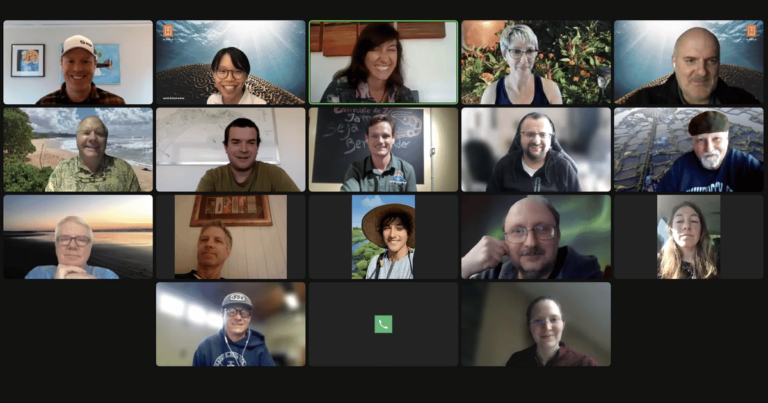
The regionally-focused programme is part of a four-year US Economic Development Administration (EDA) grant awarded to the Natural Energy Laboratory of Hawaii Authority (NELHA) and builds on the success of a three-year pilot aquaculture program with Hatch. It aims to transform that program in to a self-sustaining long-term effort to attract significant investment and increase job creation in Hawaii to further build the archipelago’s aquaculture ecosystem.
“We are delighted to host such an exciting collection of local and indeed global aquaculture talent in this year’s Hawaii studio,” said Greg Barbour, executive director of NELHA. “In partnering with Hatch in this initiative we are looking forward to attracting developing and engaging many more cohorts and aquaculture talent over the coming years. It is a wonderful way for our international participants to see and learn about Hawaii’s ambitious plans to grow its global aquaculture opportunities. And for our Hawaii-based companies to connect with – and learn from – founders from different geographies, backgrounds and experiences. We are looking forward to supporting their progress over the course of the program.”
“The Innovation Studio is part of a range of innovation programmes and activities that will take place and be developed at our NELHA location over the next four years and beyond,” said Wayne Murphy, co-founder and partner of Hatch. “I’m very excited about our development plans in Hawaii, as we now seek to headquarter much of our global innovation program and accelerator activities there. We also plan to launch and develop of our aquaculture incubator and R&D facilities there later this year.”
The 11 companies were selected from applications originating from all over the Americas and Oceania, and those who made the cut will be treated to a month-long part-time programme, featuring some of the US aquaculture sector’s most prominent players as mentors, along with support and guidance from the Hatch team and network.
While meetings during the first week took place digitally, some teams are exploring the option of using Hatch’s office in NELHA for the second half of the programme. The program will finish with a Hawaiian Aquaculture Community Day on 13 May at NELHA, where all participants will pitch their future plans and ambitions for their companies to an invited audience.
The successful applicant startups consist of:
- LarvIA Seaforestation Co – this Ecuadorian startup is developing an artificial intelligence-based service that aims to estimate the individual weight and size of juvenile shrimp.
- Sea Forestation – based in Australia and the US, this marine permaculture startup aims to restore natural upwelling and build out hectares of marine permaculture globally for food, feed and fertilizer production, regeneration of marine ecosystems and measurement of carbon export.
- The Ocean Ranch – based in the US and with operations in Brazil, this early stage startup is developing ecological water treatment methods, with an initial focus on the shrimp farming sector.
- Minnowtech – the US-based company has developed – and is now poised to trial in the field – an acoustic shrimp biomass reading device which can be deployed by shrimp farmers.
- Marine AgriFuture – this Hawaiian startup is developing a Salicornia – Gracilaria hydroponic polyculture system and plans to sell its seaweed and saline vegetables to retail outlets around the archipelago. There is also scope for the system to treat wastewater from other farmed aquatic species.
- Kulahaven Farms – is developing an recirculating aquaponics facility in Hawaii that’s capable of producing both rainbow trout and watercress.
- Kauai Sea Farm – aims to produce native Hawaiian sea cucumbers, mullet, milkfish, seaweeds and hard clams for the Asian markets in US and Singapore.
- Nucleic Sensing Systems -the Minnesotan startup claims to have developed the world’s only field-deployable, automatic, web-connected monitoring tool, able to report real-time data on environmental DNA (eDNA).
- AquaIMX Inc – based on Prince Edward Island (PEI), in Canada, the startup is developing biodegradable nanoparticles to improve vaccine efficacy.
- Certified Quality Foods – the Texan startup is developing a pocket-sized electronic device, app and dashboard for measuring and analysing fish and seafood quality. This can both be used by producers to certify the high quality of their goods, and buyers seeking to establish the quality of seafood products.
- Lythium – this Chilean startup is developing artificial vision technology to evaluate food quality in processing plants.